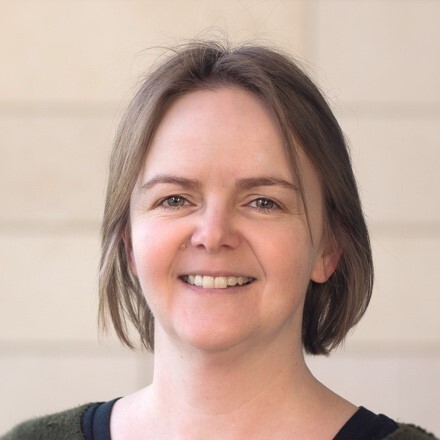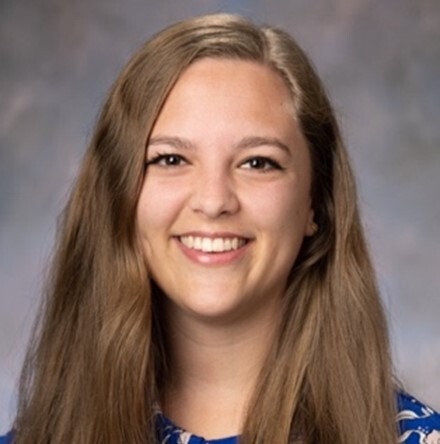
Workshop: Scalable pharmacogenomics annotation and computable variant representation for genomic medicine
-
Register
- Regular Member - $10
- Early Career Member - $5
- Resident/Clinical Fellow Member - $5
- Postdoctoral Fellow Member - $5
- Graduate Student Member - $5
- Undergraduate Student Member - $5
- Emeritus Member - $5
- Life Member - $5
- Nonmember - $25
- Trainee Member - $5
Digitalization of patient medical charts in the form of electronic health record (EHR) promotes precision medicine, which promises to be inclusive of a broad view of a person’s care. Disease genetics and pharmacogenomics (PGx) contributes to the success of precision medicine by providing genetic insights from preemptive care and disease diagnosis to drug prescribing recommendation. However, integrating genomics with EHR-linked health care systems is challenging. The ever increasing scale of EHR-linked health care systems ensues an increasing need for automated, computational annotation of genetic information to support fast-paced clinical decision making. This workshop will introduce several bioinformatics tools that facilitate automatic, computable annotation of genetic information. Computable representation of genetic variants is one bottleneck for accurate genetic curation and automatic annotation in analyses following clinical genetic tests.
The first part of the workshop will focus on the Variation Representation Specification (VRS, pronounced “verse”), a recently published standard of the Global Alliance for Genomics and Health for the computable representation of biomolecular variation. VRS allows precise and federatable identification of genetic variants for downstream disease annotations and PGx annotations in EHR-linked health care systems. The associated VRSATILE (“versatile”) framework provides additional tools for representation of variation in computable genomic knowledge exchange. Exemplary applications of VRSATILE include knowledge and evidence retrieval across databases (e.g., functional and clinical databases) and computable representation of PGx variants. The second part of the workshop focuses on automating PGx annotations using PharmCAT (Pharmacogenomics Clinical Annotation Tool). PharmCAT is able to digest genetic information from VCFs, infer PGx named alleles and phenotypes, and generate detailed reports for clinical decision support. The capability of PharmCAT to automate PGx annotation makes it possible to translate clinical genetic test results to clinical decisions and actions at the scale of EHR-linked, large-scale health care systems. The workshop will provide an interactive, hands-on experience for participants and familiarize the audience with the latest bioinformatics tools that facilitate automation of genetic annotation and PGx annotation for large-scale, EHR-linked health care systems.

Michelle Whirl-Carrillo
Dr. Whirl-Carrillo is Co-Principal Investigator and Director of the Pharmacogenomics Knowledge Base (PharmGKB), Co-Director of Informatics for the Clinical Pharmacogenetics Implementation Consortium (CPIC) and Co-Investigator of the Pharmacogenomics Clinical Annotation Tool (PharmCAT). Her research interests include the translation of human genome sequencing data to pharmacogenomic-based therapeutic recommendations. She has 20 years of experience in the field, working collaboratively on many projects and serving on multiple advisory boards. Michelle received her PhD in Biophysics from Stanford University and her SB in Biology from MIT.

Alex Wagner, PhD
Principal Investigator
The Steve and Cindy Rasmussen Institute for Genomic Medicine (IGM) at Nationwide Children’s Hospital
Dr. Wagner is a Principal Investigator at The Steve and Cindy Rasmussen Institute for Genomic Medicine (IGM) at Nationwide Children’s Hospital. He analyzed the content of multiple public knowledgebases of the Variant Interpretation for Cancer Consortium (VICC) and demonstrated the need for data standards and supporting tools for genomic knowledge sharing and reuse. From this work, he took on the development and application of genomic knowledge standards under the auspices of the Global Alliance for Genomics and Health (GA4GH). In 2021, Dr. Wagner was recognized by the National Human Genome Research Institute (NHGRI) as an NHGRI Genomic Innovator for his work in this area. He currently holds leadership and/or invited positions in multiple national and international consortia, including GA4GH, the NIH Bridge2AI program, the HGVS Variant Nomenclature Committee, and the Variant Interpretation for Cancer Consortium (VICC).

Katrin Sangkuhl
Dr. Katrin Sangkuhl is a senior scientific curator at PharmGKB in the Department of Biomedical Data Science at Stanford University. She contributes to the development, maintenance, and application of the Pharmacogenomics Clinical Annotation Tool (PharmCAT) and is actively involved in the Clinical Pharmacogenetics Implementation Consortium (CPIC) and the Pharmacogene Variation (PharmVar) Consortium.

Binglan Li
Postdoctoral Scholar
Dr. Binglan Li is a postdoctoral Scholar in Dr. Teri Klein's lab since late 2020. She is interested in genomic medicine and promoting the implementation of pharmacogenomics in clinical care through the development of tools, such as PharmCAT (Pharmacogenomics Clinical Annotation Tool). Her doctoral projects focused on understanding the genetic architecture of complex human traits and translational biomedical research using ‘omics data integrative methods and electronic health records. Binglan obtained a BS from Fudan University, China, and a PhD from the University of Pennsylvania.

Teri Klein
Dr. Teri Klein is the Principal Investigator for the PharmGKB and Professor of Biomedical Data Science and Medicine at Stanford University. Dr. Klein is also the Co-Principal Investigator for CPIC (Clinical Pharmacogenetics Implementation Consortium) and PharmCAT. She was recruited from the University of California, San Francisco faculty and was the Director of the PharmGKB since it began in April 2000 until September 2019. Teri received her PhD in medical information sciences from the University of California, San Francisco and a BA in biology/chemistry from the University of California, Santa Cruz. Prior to becoming the director of the PharmGKB in 2000, Dr. Klein was an Associate Adjunct Professor at UCSF.

Marylyn Ritchie
Dr. Marylyn Ritchie is a Professor of Genetics, Director of the Institute for Biomedical Informatics, Director of the Center for Translational Bioinformatics Institute for Biomedical Informatics, and Associate Director of the Center for Precision Medicine at the University of Pennsylvania School of Medicine. Dr. Ritchie is a statistical and computational geneticist with a focus on understanding the genetic architecture of complex human diseases. She has expertise in developing novel bioinformatics tools for complex analysis of big data in genetics, genomics, and clinical databases, particularly in the area of Pharmacogenomics. She is the co-PI of PharmCAT.

Mark Woon
Mark Woon is the co-technical lead at PharmGKB and PharmCAT and has been with PharmGKB since 2001. He received his BSE in computer science from Princeton University. Prior to working on the PharmGKB project, Mark worked for Sun Microsystems and Netscape Communications.

Wesley Goar
Dr. Wesley Goar is a Senior Bioinformatics Scientist in the Wagner Lab at Nationwide Children’s Hospital in Columbus, Ohio. He obtained his undergraduate degree in Molecular Biology from Brigham Young University and his doctorate degree in Computational Genomics from the University of Iowa. During his graduate training he performed bioinformatics analyses of rare inherited eye diseases using genome, exome, panel, and RNA-sequencing technologies. After graduating, he managed the bioinformatics team for Immortagen Inc, performing cancer diagnostic reports for patients in China. He currently works on the standardization of variant data and the automation of variant assessment.

Kori Kuzma
Kori Kuzma graduated from The Ohio State University with a bachelor’s degree in Computer Science and Engineering. At the Institute for Genomic Medicine, she develops and deploys web applications for the analysis and interpretation of genomic variants.

Katie Stahl
Katie Stahl does full-stack development for the Wagner lab at Nationwide Children’s Hospital, working with research staff to develop open-source bioinformatics applications for efficient data analysis and visualization. Katie received her degree in Computer Science with a minor in Mathematics from Capital University.

James Stevenson
James Stevenson is a software developer in the Wagner Lab at Nationwide Children’s Hospital. He holds a bachelor’s degree in Political Science and Philosophy from the University of Puget Sound and is completing a master’s degree in Computer Science from the Georgia Institute of Technology. His research interests include applications of machine learning techniques in clinical medicine.

Karl Keat
Karl Keat is a PhD candidate in Genomics and Computational Biology at the University of Pennsylvania, where he works in the labs of Dr. Marylyn RItchie and Dr. Dokyoon Kim. His research focuses on pharmacogenomics and mutli-omics data integration for improving drug response prediction.